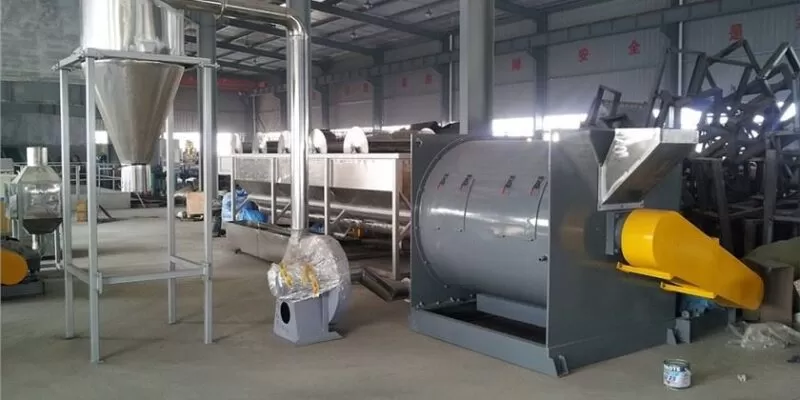Plastic pollution is a global issue, and Malaysia is no exception. The mountains of plastic waste, polluted oceans, and damaged ecosystems all point to a serious problem. What’s the solution? Plastic recycling. But how exactly has Malaysia’s plastic recycling industry developed?

Malaysia’s plastic recycling industry has made significant strides in recent years. With innovative technologies and government support, Malaysia is building an efficient and sustainable plastic recycling system.
You might be wondering, what specifically has Malaysia done to advance its plastic recycling industry? Let’s take a closer look.
What Are Malaysia’s Plastic Recycling Policies?
The Malaysian government has introduced various policies to promote the development of the plastic recycling industry. For example, the government encourages companies to use environmentally friendly materials, reduce plastic usage, and provides tax incentives to recycling businesses. Additionally, a nationwide waste segregation program has been implemented to increase public awareness of environmental protection and promote plastic recycling.
How Has Recycling Technology Developed?
In terms of technology, Malaysia’s plastic recycling companies have adopted many advanced methods. Mechanical recycling technologies are used to shred, wash, and reprocess old plastics into high-quality recycled plastics. Additionally, chemical recycling techniques are being gradually introduced, breaking down plastics into raw materials through chemical reactions for the production of new plastic products.
What Are the Economic Benefits of Plastic Recycling?
Plastic recycling not only helps protect the environment but also brings significant economic benefits. By recycling plastic, companies can reduce raw material costs and increase production efficiency. Moreover, the plastic recycling industry creates numerous job opportunities, contributing to economic growth.
What Is the Market Outlook for Plastic Recycling in Malaysia?
The market outlook for plastic recycling in Malaysia is promising. With growing environmental awareness and government support, more companies and individuals are getting involved in plastic recycling. Additionally, the increasing demand for recycled plastics in international markets further drives the development of Malaysia’s plastic recycling industry.
How Is Plastic Recycling Applied in Agriculture?
In the agricultural sector, Malaysia is actively promoting plastic recycling. For example, recycled plastics are used to produce agricultural films, irrigation pipes, and other farming products, which save resources and improve agricultural productivity. These recycled plastic products are durable and cost-effective, making them popular among farmers.
How Is Plastic Recycling Applied in Construction?
Plastic recycling is also widely applied in the construction sector. Recycled plastics can be used to produce building materials such as plastic panels, flooring, and pipes. These materials are not only environmentally friendly but also lightweight and durable, making them suitable for various construction projects.
How Is Plastic Recycling Applied in Daily Life?
In daily life, recycled plastics are used to produce various consumer goods. For instance, plastic bottles, bags, and toys are often made from recycled plastics. This reduces reliance on virgin plastics and effectively decreases plastic waste.
How Can Public Environmental Awareness Be Raised?
Raising public environmental awareness is crucial for the development of the plastic recycling industry. The Malaysian government and environmental organizations actively promote environmental protection concepts through public education and environmental activities. Only with public participation can the goals of plastic recycling be truly achieved.
Conclusion
Malaysia’s plastic recycling industry is rapidly developing. Through government support, the application of advanced technologies, and increased public environmental awareness, Malaysia has made significant achievements in the field of plastic recycling. In the future, we will continue to strive to contribute to the development of the plastic recycling industry.
Plastic recycling is not only key to environmental protection but also a crucial pathway to sustainable development. Let’s work together to create a better future.
